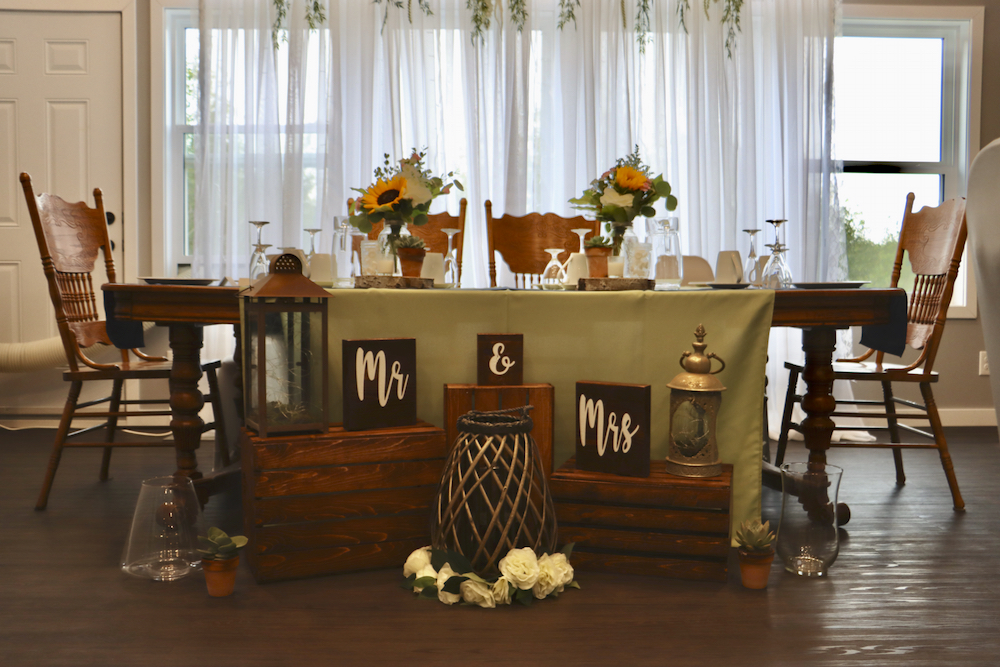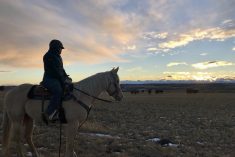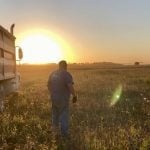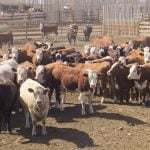In my previous article, I wrote about things to be aware of when marrying into a family farm. But just as someone marrying into a family farm has things to consider, the farmer also has considerations before bringing someone into the mix.
Today, most people believe that divorce implies that it’s a basic division of your home, bank accounts, cars and home furnishings.
However, on farms and ranches, our assets are usually tightly entwined with how we make our living. Moreover, realizing the value of crops and livestock takes time.
Read Also
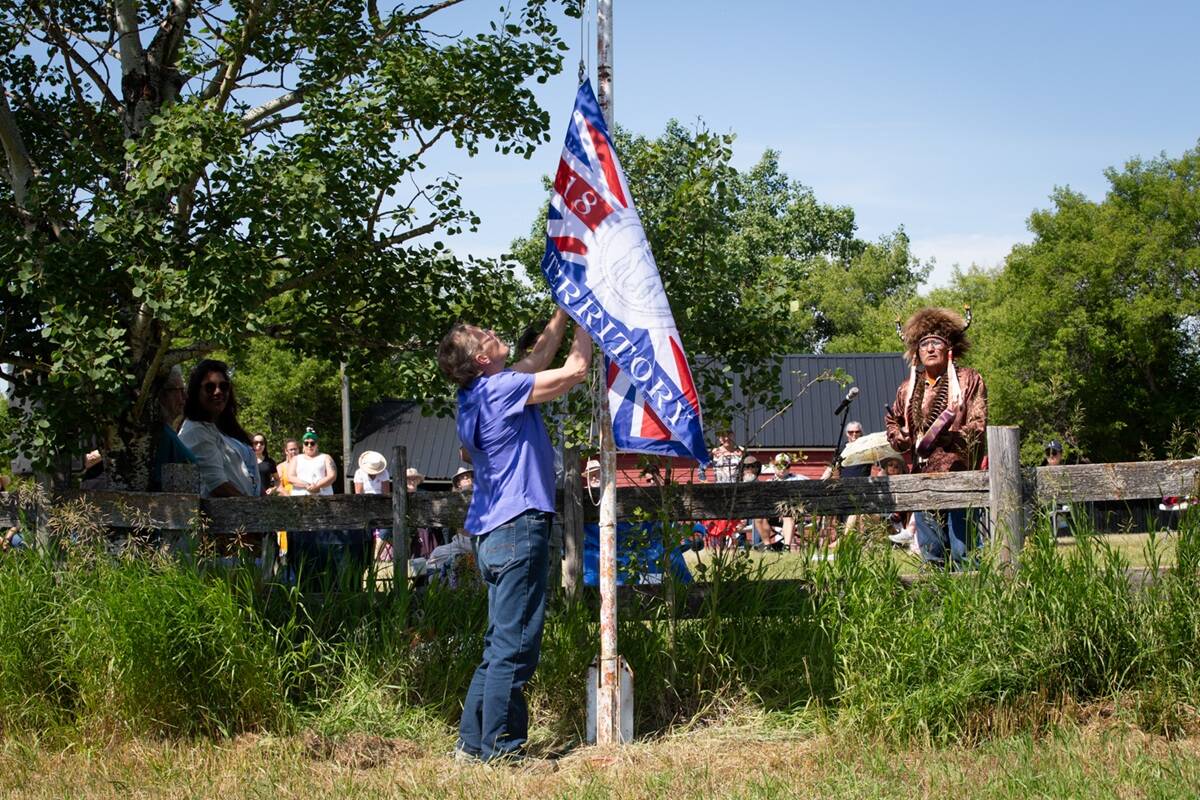
Treaty Land Sharing Network expands reach in Saskatchewan and Alberta
The Treaty Land Sharing Network, which connects land holders with First Nations and Metis people, has expanded since it began in 2018
So, if you fear divorce for your family and your farm, how do you protect your legacy?
Since my last article covered the perspective of those marrying into already-existing family farms, it’s only fair that we cover the other side.
The statistics
As of 2021, according to Statistics Canada, there were 189,874 farms in Canada. With the average age of farm operators being 56 and the average age of divorcees being 46, it’s reasonable to assume that divorce will affect farm families.It’s fair to say that protecting farm legacies is paramount for today’s producers and farm operators.
Ninety-seven percent of Canada’s farms are family-owned and operated. Many of these are century-old and decreasing in number (189,000 farms in 2021 compared to 276,000 in 1996), making Canada the fifth-largest exporter of agricultural and agri-food products worldwide.
It’s safe to say a lot is riding on farmers’ shoulders.
So, what can be done to protect the legacy of Canadian farms when about 40 per cent of marriages end in divorce? And who are these farmers?
In 2021, 30.4 per cent of Canada’s farm operators were female. So, it would be wrong to assume that farms are always male-owned and that it’s the woman who is always marrying in.
Regardless of who has married into the farm, there’s a good chance that transition planning to protect the farm legacy is front and centre.
This is something Elaine Froese, speaker, author and certified coach dubbed Canada’s “Farm Family Whisperer,” knows all too well. In her book Building Your Farm Legacy: Tools to Empower Better Family Communication, she compiles valuable information for farmers on topics such as relationships, communication, teams and operations, planning, succession and healthy habits. Her true hope for couples? That they plant seeds of new ideas to embrace habits for better relationships and ultimately build the legacy of their farm.
As was mentioned in part one of this series, and because I think it bears repeating, Froese says, “pay attention to how tired the women are.” She often hears that women can be resentful for giving the best years of their life to the farm and ranch. She adds that people are often not feeling seen or heard. Based on what I’ve learned while interviewing farm women for my Farmwives books, I think that women prioritize quality of life and time off the farm more now than in previous decades.
Communicating goals
Something I’ve seen in my interviews with farmers for my books is that women and couples seem to be trying to be more intentional with their time and the way they do things than generations past. Froese says that women are not always willing to “cut off their left arm” for the sake of the farm. She has seen women manage 5,000-plus-acre farms as chief financial officer and administrator, with very little self-care (or appreciation).
Froese highlights that couples should create a values cloud, and an asset cloud. She also recommends they do a personal style indicator to know how they’re wired. She offers a personal style indicator and a values indicator to create clarity. It’s about what’s important to you and what’s important to your spouse or the person you will marry.
Make sure you make time in your marriage and family for what matters most. As Froese says, protect yourself from the “work-a-holic monster.”
Protect your farming assets
First, a reminder that property division is provincially regulated, and therefore it is impossible to provide legal information that would be universally applicable throughout Canada. You must seek individual legal advice, as none of the lawyers in this article are providing legal advice. Many couples are entering into domestic contracts that outline things such as compensation, trust claims, pensions, investments or spousal support releases that can help lawyers complete equalization calculations in the case of separation or divorce.
Catherine McCorquodale, lawyer with Monteith Ritsma Phillips Professional Corporation in Stratford, Ont., says that a domestic contract is the best way to protect yourself and your farming assets. This applies whether you’re marrying or cohabitating. You can draft a cohabitation agreement so that it becomes a marriage contract, without drafting a new agreement. These can be signed pre- or post-cohabitation/marriage, although there is some risk to doing it post-marriage if your spouse refuses to sign. The parties to the contract can deal with property — including real estate, farm assets, bank accounts, investments — and spousal support in the contract. But you cannot agree to post-separation parenting arrangements or child support.
A few important things to keep in mind for a domestic contract:
- Each party must make a financial disclosure, listing all assets and debts. If your agreement deals with spousal support, you also need to include incomes. The same lawyer cannot act for both parties. Each party must have the opportunity to obtain independent legal advice but cannot be forced to hire a lawyer.
- Each party must enter into the contract voluntarily with no duress or ultimatums.
- The contract does not have to be all or nothing. Not all domestic contracts are drafted so that the non-farming spouse receives nothing. There is flexibility and what the contract ensures is that the spouses have certainty of what is going to happen and who will need to pay in the event of a separation.
These contracts can be challenged for validity. That’s why it’s important to retain a lawyer. Spending a few thousand now to ensure the contract is drafted properly can save you tens of thousands later in legal fees.
Do not add a spouse to the title of property or business assets, or the farm corporation, without consulting a lawyer and accountant. Always consider what would happen in the event of separation — how much would the farm business have to pay? Again, for the sake of certainty in the event of a separation, document it, in a domestic contract or a shareholder’s agreement.
If there is a gift of shares, property, etc., again make sure it is documented properly with gift agreements. This is the same for loans. In the event of a separation, you need proof that the money was a loan, not a gift, and what the expectations were for repayment.
Make sure you have an up-to-date will that aligns with your domestic contract.
If the farmhouse crumbles
Divorce is never easy. But it’s even more challenging when it involves a farm.If this is where you find yourself, ensure you get the support you need. Again, communication and access to the right professionals can help the process.
Solidify your emotional support group and reach out for help when you need it.
The focus should be on a fair resolution that allows the farm to recover from the divorce, with succession planning for your children and future generations.
The best way to protect a family farm is to contemplate the effects of any future divorce.
– Billi J. Miller is a published author, photographer and speaker from east-central Alberta. She freelance writes from her home office where she can be reached through her website: billijmiller.com. For more on her Farmwives books, visit billijmiller.com/farmwivesbookproject.

